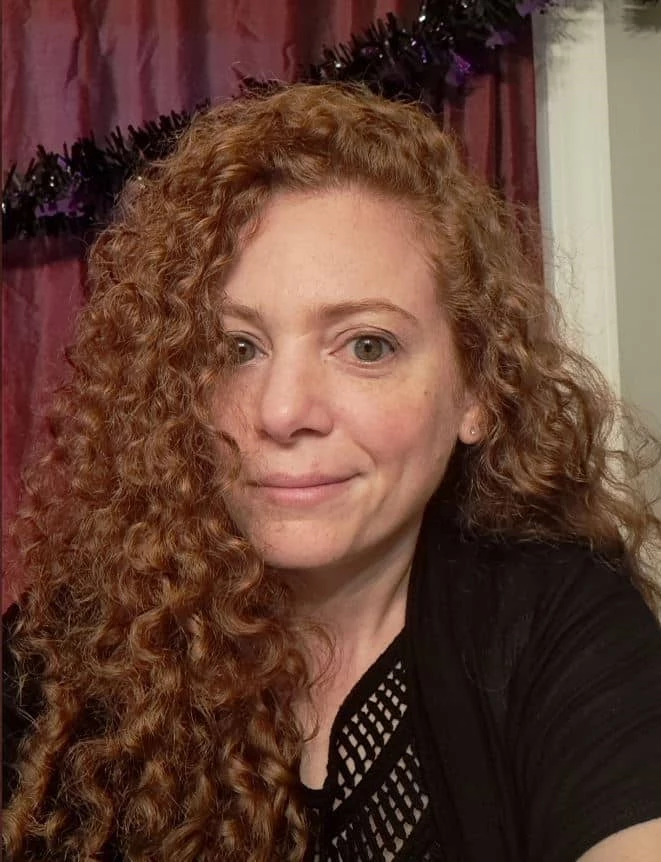
The Internet will happily tell you the correct way to get your infant to sleep through the night. The correct way to eat sushi. The correct way to teach a child good manners, the correct way to hold a dinner party, the correct way to flirt with someone, the correct way to dress for a wedding. Our culture is full of “the one right way” to do something.
The only “new” thing about what I just said is “the Internet.” The rest of it has been around forever.
Human societies have always been about a “right way” to do something. Manners, etiquette, courting, education, religion. In public, there has always been a “right way.” Humans are judgmental creatures, and if we can’t judge our neighbors, whatever would we do with all that extra time on our hands?
I’ve chosen an odd entry point to discuss S.B. Divya’s historical fantasy story “An Unexpected Boon,” but perhaps not, since the pivot of this story occurs when a cultural expectation is executed in a very not-correct way. (I meant to open this article with “What does engineering and writing fantasy have in common?”)
Kalyani and her older brother Aruni are home alone for a few days while their parents are in the city. This is a town with no knowledge of the autism spectrum, however Kalyani’s family allows her to be herself. They know she needs to count things, they know she hates being touched, they know she needs time to cope with the world. Her brother accepts her, but looks forward to the day that she’s not his problem anymore. Kalyani simply wants to have friends who understand her, and she wants to be able to understand other people. A perfect gift from a sage takes her on her first step. A cultural expectation gone terribly wrong allows her to use the gift in a whole new way. The gift helps her be a little bit like other people, but as she says: “I will always be myself.”
It’s interesting, how Aruni views his sister. She might be odd, but she’s so damn confident in who she is. Aruni, on the other hand, desperately wants a career in the arts, but knows if he is to support his betrothed, that his dream career can never be. When Kalyani discovers a path that can lead them both to their goals, will Aruni be confident enough to follow her?
This was a joyous and difficult story for me to read, as I saw a lot of myself in Kalyani. My hypersensitivity is much, much milder than hers, but still, I am easily over stimulated and coping mechanisms take time and only work maybe half the time. How wonderful to see an accurate and respectful representation of hypersensitivity and the ways in which a family can meet their child’s needs! We never actually meet Kalyani and Aruni’s parents, but from the way Aruni treats his sister, I imagine their parents know the best thing they can do for their daughter is to accept her for who she is and to let her be herself. They’ve found the right way for them, even when it means risking being cursed.
S.B. Divya has been writing science fiction for longer than she’s been an engineer, and she’s been an engineer for twenty years. Her short fiction has appeared in Lightspeed, Tor.com, Mothership Zeta, Daily Science Fiction, and the indie game Rogue Wizards. Her novella, Runtime, was a Nebula finalist. She loves math, science, playing with language, and the Oxford comma. She is the co-editor of Escape Pod, and can be found at her website eff-words.com, and on Twitter at @divyastweets. S.B. was kind enough to chat with me about the cultural roots of this story, Hindu traditions and mythology, how modern technology and AIs intersect with, and affect, cultural traditions, the frustration of “the one right way,” the world of Runtime, the joy of Escape Pod, and what engineering and writing speculative fiction have in common.
APEX MAGAZINE: Life can’t be easy for Kalyani. Actually, her own life, when no one bothers her, is just fine. She knows what numbers are good and which are unlucky, how much tactile interaction she can handle, she knows what she likes to eat, and she loves her family. She has her own life figured out quite nicely, thank you very much, although she would like to have some friends who are easier to talk to that the other students at her school. Most adults are forgiving of her oddness, but the other teenagers, not so much. What were some of the challenges of writing Kalyani’s character?
S.B. DIVYA: One challenge was to make Kalyani understandable and sympathetic. I’m an engineer, and I spend much of my life interacting with people who think systematically, so it wasn’t hard for me to get inside Kalyani’s head, but I wanted readers to be able to identify with her. Even with the awareness we have today about people on the autism spectrum, that doesn’t always translate to empathy.
The other tough one was to stay authentic to Kalyani’s voice and make it distinct from her brother and his more artistic temperament. I wanted to convey her experience of the world. The sensory details she pays attention to are different from what her brother notices.
AM: I loved the scene early in the story where Kalyani is serving dinner to the visiting sage, and he is thrilled to enjoy a quiet meal. Later in the story is a similar scene with a different sage and a very different result. Can you tell us a little more about the strict etiquette rules that Kalyani and her family follow?
SBD: The tradition of welcoming guests—even or especially surprise guests—and treating them “like God” is a venerable one in India. The details vary, but generally a host should provide water to wash the guest’s feet (and possibly do the washing), feed the guest, light a lamp for them, and offer them a place to rest.
The desire to be served by a female member of the household is a detail I grafted on, in part from later cultural aspects (that women should serve food to the men of the house, never the other way around). I took some artistic license here because the story takes place in ancient times, during the Vedic era when most records were kept orally.
From a personal standpoint, it’s deeply ingrained in me to treat a guest better than I would treat the members of my household. It’s also an unshakeable habit that if I’m planning to visit someone else, I never go empty handed.
AM: And oh, where this story goes! What Kalyani is able to do with the sage’s gift! What the beetle gives her, what she becomes, and yet, she is still herself. Tell us a little bit about how this story came about and what inspired you to tell Kalyani’s story in this way.
SBD: I was mainly inspired by stories from childhood. Hindu mythology often relies on sages (or rishis), a type of character that I haven’t come across in other cultures. Like monks, they’re devout ascetics, but they can have wives and children. They can also have god-given powers, and their blessings and curses can be very strong. For this story, I wanted Kalyani’s boon to be something that she wanted and needed, something that wasn’t obvious for that time period, like money or children. And ultimately, the other sage’s curse gets mitigated by the first one’s blessing.
As for Kalyani’s challenges with the world, they’re a collage of people I’ve observed in real life, including myself. Especially after having a baby, I noticed this strong push toward a monoculture, that’s there’s One Right Way to raise a Good Child. I’m more comfortable with “Do what works for you and your family.” When I look at history and the variety of cultures around the world, it’s pretty clear (to me) that one size does not fit all. This led to me wonder what might have happened thousands of years ago to an atypical child with parents who met her needs.
AM: This is a story with sages, magical beetles, and the etiquette of hospitality, yet you often blog about the future, AIs, machine languages, and how we might get from here to there. With Alexa, Google Home, and Siri, will there still be room in the future for hospitality and cultural traditions? The idea of AIs sounds so very futuristic—how might AIs help us preserve our traditions?
SBD: It’s true, I rarely delve into fantasy! I’m not much for keeping with tradition for its own sake, but I do like the idea of developing rituals or traditions that fit with modern times. I think the family selfie is one that we already see. The home AIs of today and tomorrow could notice repeating family patterns and suggest traditions based on those. They could also help spread cross-cultural ideas by suggesting birthday or anniversary traditions from different times or locales.
In terms of hospitality and etiquette, I suspect these will continue to evolve without us realizing it. There might be new rules for dealing with someone else’s home AI when you’re a guest, or vice versa. For example, it’s expected today that you’d share your Wi-Fi password with a guest in your home. Not doing so would seem rude. Similarly, you wouldn’t install software on a device you borrowed from your host without asking.
AM: Congratulations on your novella, Runtime, which was a Nebula award finalist! Runtime takes place in an anti-immigrant future United States, where immigrants are charged exorbitant rates for licenses to offset the costs of public services they use but may not have paid taxes towards. We are not in that dystopian future quite yet, but the political climate has changed drastically in the last few years. Be it politics or technology, what does it feel like to write what to you is science “fiction,” and then have the real world creep ever so closer to making it just shy of factual?
SBD: For the negatives to come even somewhat true, it’s not a good feeling at all! I was very much in the, “I didn’t mean to predict this!” mindset for the first part of this year. But for technology—especially improvements in medicine or space science—it can be fun to see your ideas come to fruition.
There’s always a danger when writing near-future science fiction of reality catching up to your story, but I think writers and readers are understanding of that. Generally, they’re forgiving of your inevitable mistakes, too, as long as your story speaks to the human condition. I don’t think anyone refuses to read 2001 because it’s an inaccurate depiction of that year (though someone on the internet will probably speak up to contradict me)!
AM: Along with writing amazing fiction, you’re also the co-editor of Escape Pod, along with Mur Lafferty. What have been some of your favorite experiences at Escape Pod? Do you have any advice for fledgling audio narrators and podcasters?
SBD: The best thing about working at Escape Pod is discovering a new author or unpublished story. I’m not sure how much advice I can give. The podcast was well established long before I started helping out. I will say that a clothes closet makes a pretty good sound booth. Also, reading for a live audience is quite different from reading to a bunch of shirts.
AM: You worked as an electrical engineer for over twenty years. How did you go from engineering to science fiction writing? What, if anything, do engineering and writing have in common?
SBD: I started writing science fiction in my teens, long before getting into science or engineering as a profession, but I mostly gave up on it after going to college. The desire to write stories never went away, though, and I decided a few years ago to learn how to write with the intent of publishing (which to me was different from writing for my journal or blog).
One lesson from engineering that’s carried over to my writing is that a final product takes many revisions and still won’t be perfect. You build a thing—software, hardware, or story—find and fix the obvious mistakes (bugs), and come up with ways to improve the next thing.
AM: What’s next for you? Can you confirm the rumor that you are working on a full-length novel?
SBD: What? Who told you that?
Yes, I’m working on one. Whether it’ll go to submissions depends on many factors. I’m also continuing to write short stories, a format that I love as much as novels, and I will write more full-length novels after this one, too. Sort of like Kalyani’s itching, I get a horrible, antsy feeling in my body if I go too long without writing. It’s compulsive!











